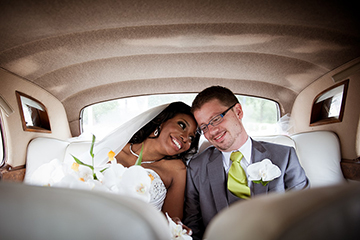Getting Married? Here’s What You Need to Know
(The Government of South Africa)

Three Types of Marriages
In South Africa three types of marriages are recognised. The Department of Home Affairs manages the validation and registration of marriages, civil unions, and customary marriages.
- A marriage is traditionally officiated by a religious official, government official or state approved official and is governed by the Marriage Act (Act 25 of 1961). In South Africa marriages are in community of property (where spouses share their assets and debts), unless an antenuptial contract (where each spouse has their own assets and debts) has been entered into.
- A civil union may be entered into by same sex partners in terms of the Civil Union Act, (Act 17 of 2006). The legal consequences of the Marriage Act apply but within the context of the Civil Union Act. Designated marriage officers in South Africa are qualified to formalise such a union.
- A customary marriage is negotiated, celebrated or concluded according to indigenous African customs that exist in our country. This excludes marriages that are in accordance with Muslim, Hindu or any other religious rites. The Recognition of Customary Marriages Act (Act 120 of 1998) acknowledges customary marriages and provides the legal considerations for this type of marriage.
How to Ensure Your Marriage is Valid
- Make sure an authorised marriage officer performs the marriage.
- You need to have at least two witnesses at your ceremony.
- You will need to get married in a church or another building used for religious services. You can also get married in a public office or private house with open doors.
- In the case of serious illness or injury, your marriage may take place in a hospital or any other relevant facility.
Prohibited Marriages
Aside from planning your big day, you must ensure:
- You are legally allowed to marry your partner.
- Understand the legalities of marriage.
- Make sure your marriage will be recognised under South African law.
Information on the people you may or may not legally marry is available on the Department of Home Affairs website.
Apart from being a day of celebration, you will have to present the following documentation to the person officiating your wedding:
- Identity documents (for each person getting married).
- If a foreign national is marrying a South African citizen, they should both present their valid passport, as well as a completed BI-31 form (Declaration for the Purpose of Marriage, letter of no impediment).
- The written consent of both parents/ legal guardians, or the Commissioner of Child Welfare, or a judge should be submitted on form DHA-32 in the case of a minor. If the boy getting married is younger than 18 and the girl is younger than 15, the written consent from the Minister of Home Affairs will also be required.
- If any of the persons getting married are divorced, then the final decree of divorce should be furnished.
- If any of the persons getting married are widowed, the deceased spouse’s death certificate must be submitted.
Marriage Certificates
The marriage certificate will be signed by yourself and your partner, two witnesses and the marriage officer. This is given free of charge by the marriage officer, who then submits it to the National Population Register to ensure your marriage is recorded.
Any additional abridged copies or unabridged copies of the marriage certificate can be requested by:
- Completing form BI-130 in black ink and submitting it to the nearest Home Affairs office or to the nearest South African embassy, mission or consulate abroad.
- Paying the prescribed fee.
- The first issue of an abridged marriage certificate is free, and a re-issue is R75.00.
South Africa has a large number of fraudulent marriages reported to the Department of Home Affairs.You can check your marital status at anytime by visiting your nearest Home Affairs office with your ID or alternatively you can call 0800 601 190.
More information on marriage can be found on the Home Affairs website.
- What you need to know about marriage contracts (Public Information)


